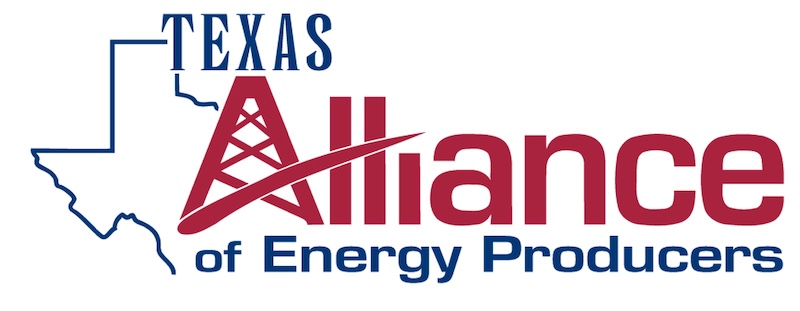Comments from Jason Modglin—Texas Alliance of Energy Producers to the Congressional Western Caucus Virtual SeriesAUSTIN, Texas (Feb. 26, 2021)—Thank you, Chairman Newhouse, Congresswoman Cheney and Congressman Arrington for the invitation to be here. My name is Jason Modglin. I serve as President of the Texas Alliance of Energy Producers, a trade organization based in Texas representing over 2,600 individuals and member companies focused on advancing independent operators, particularly small and family-run operations, and the standards of the oil and gas industry. Texas is home for most of our members, but many have operations across the country. We represent the upstream segment of the oil and gas industry. We have a 90-year history as an association and many of our members are multi-generation oilfield. Part of the proud history of American oil and gas, that helped this country end two world wars, produce the fuels and feedstocks to power our economy and provide the innovation to meet the world’s energy demands. It is an honor to be with you and the Congressional Western Caucus to amplify the voice of men and women working in rural America that are being harmed by federal policies that limit investment in infrastructure and the harvesting of our natural resources. Thank you for your attention to two key issues brought on by recent executive orders. Federal LeasingFirst, federal leasing and permitting restrictions. Energy produced on federal lands and waters plays a critical role in America’s energy revolution, accounting for 12% of U.S. natural gas production and nearly a quarter of U.S. oil production. Unlike other western states, Texas has a small portion of onshore federal lands that would be impacted directly by these orders. But that by no means diminishes the great benefit each year from sales by the Bureau of Land Management for leases on federal lands allowing operators to extend horizontal well laterals into federal land when they are developing adjacent plays. This minimizes surface damages and provides for additional revenue to the state of Texas and the federal government. The main impact in Texas will be in challenges to offshore leasing and permitting. Offshore production, the majority of which is in the Gulf of Mexico is one of the largest U.S. oil plays: roughly 71 percent of all oil production on U.S. federal lands and waters and about 17 percent of total U.S. oil production comes from federal waters along the Gulf Coast. In fiscal year 2020, more than $95.3 million was distributed to Texas and its counties thanks to Congress’ action on the Gulf of Mexico Energy Security Act. In September of last year, the American Petroleum Institute commissioned a study of the impact of a total interruption of federal leasing and permitting. In their study, they found that Texas would lose an astounding 120,000 jobs. Beyond the devastation of losing good-paying jobs in a great industry, these policies would decimate our nearly 50-year national energy policy to seek energy independence and resilience. From the report:
Most frustrating of all in these executive orders is how they have profound negative environmental impacts. Constraining production in the United States does not lessen demand. That demand shifts to other sources overseas, namely OPEC+ which do not have the same environmental or labor standard as this country. Please if you can convey one message to your colleagues it is this: Constraining production in the United States does not lessen demand. This country relies on oil & gas and will get it from somewhere, the hundreds of thousands of Texas families employed in our domestic industry can meet that need and do so to the high standard this country has set for business and industry. I was heartened by your colleague, Congresswoman Deb Haaland’s comments this week in her senate confirmation hearing for Secretary of the Interior that the ban will not be permanent. But “slow is the same as no” in preventing investment, jobs and returns for the American taxpayer. Offshore production has been exceptionally good for America and our Gulf Coast. Combined with the shale development, affordable, abundant, and reliable natural gas has remade our coast lines bringing manufacturing back to the US. In Texas alone, manufacturing accounts for nearly one million jobs. PipelinesSecond, on pipeline restrictions specifically the Keystone XL pipeline. The southern portion of the Keystone pipeline running through Texas has been operating for over five years providing a critical conduit for production coming to Cushing, Oklahoma from the Midwest and making its way to critical refineries and export facilities along our Gulf Coast. The order denying the Presidential permit, stopped ongoing work and harmed union jobs. Pipelines are without a doubt the safest way to transport oil and the only way to safely move gas overland. Stopping a pipeline, a bridge, to our number one trading partner in Canada does not stop that trade. Instead, that movement will be facilitated by costlier train or truck traffic. Tying up trains to move oil, drives up prices for transport in America’s Breadbasket: harming farmers and consumers. A prominent agricultural economist estimated shutting down a pipeline would cost Corn Belt farmers more than $1 billion in annual revenue and “drive up food costs for consumers” as oil would command key space on railroad cars needed to transport agricultural products long distances. Transporting oil by pipeline is not only more cost-effective but also better for the environment. A 2017 study published by Environmental Science and Technology found “pipeline transportation produced between 61% and 77% fewer greenhouse gas emissions than by rail.” Infrastructure is a public good that we should prioritize as a nation. Building back better means investing in pipelines and strengthening our trade corridors. The events of the past week in Texas and across the nation show we need more energy not less, the ability for energy sources to meet demand relies on robust infrastructure. This nation, along with our neighbors have achieved North American Energy Independence by building on the production and supply from the US and Canada, and a rapid growing gas market in Mexico that is also demanding modernization. This is at risk under the administration’s policies resulting in higher energy costs to American consumers and increasing imports from other parts of the globe. Returning to a reliance on OPEC+ is a major step backwards, a reversal of the US energy renaissance we have achieved over the last 15 years. Litmus test designed to end American production of fuels, petrochemicals, and natural gas are wrong. I mentioned at the start, Alliance members support advancing the standards of the oil and gas industry. We have made tremendous progress and continue to make leaps and bounds in innovation resulting in lower emissions, effective protection of our groundwater, and affordable, abundant, reliable power and feedstocks for American need. Let us compete and meet the world’s energy demands. Thank you, Congressman Arrington for the invitation and happy to answer any questions.
|
Alliance Partners












